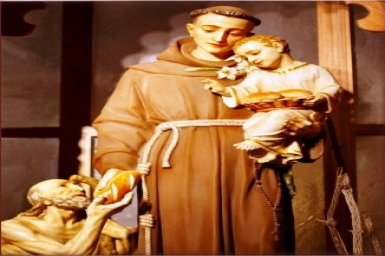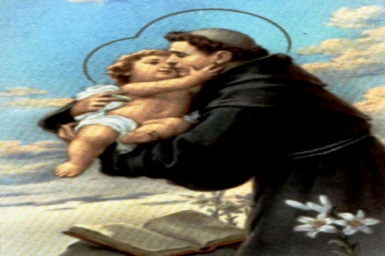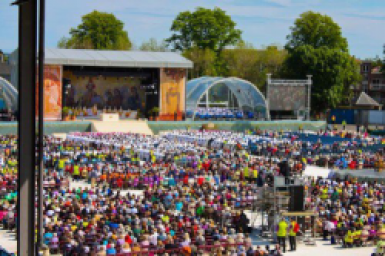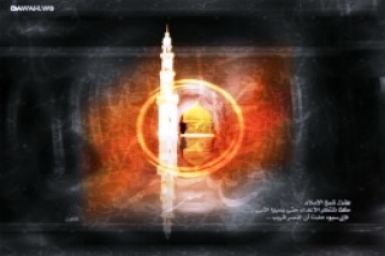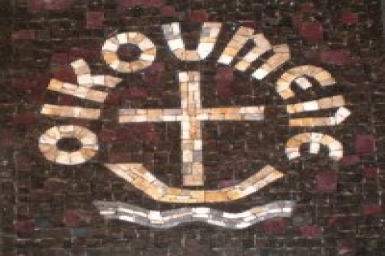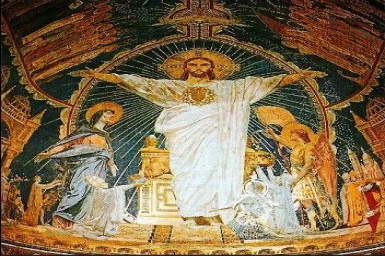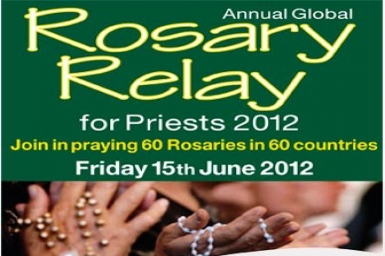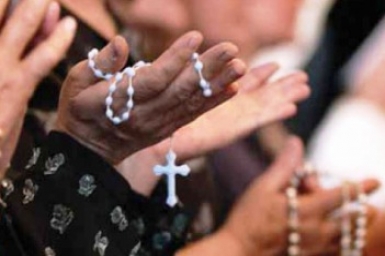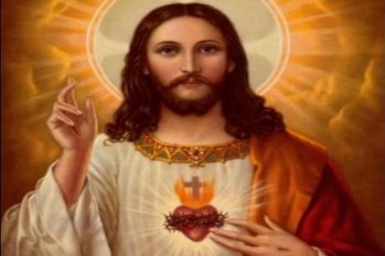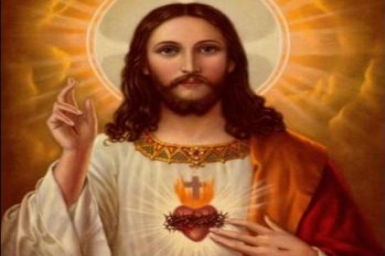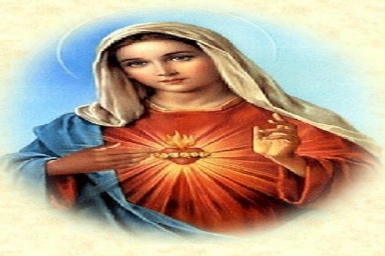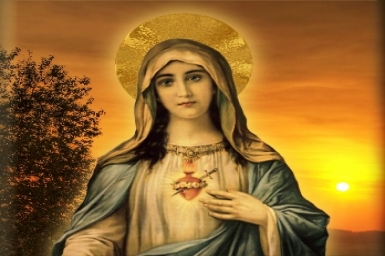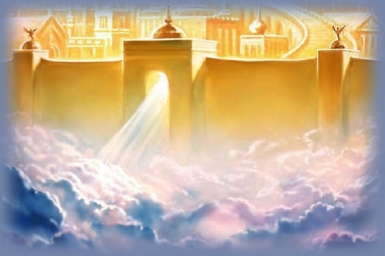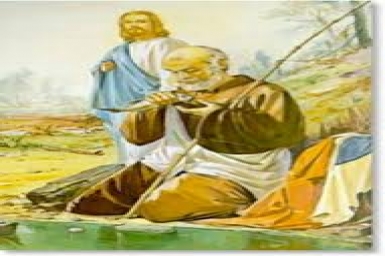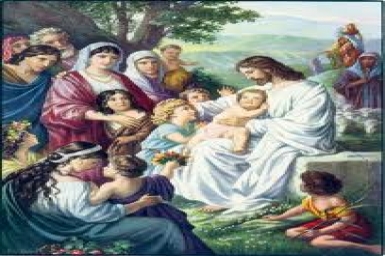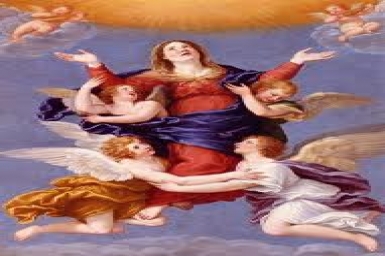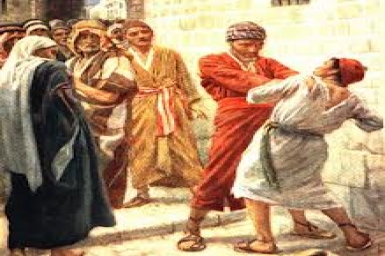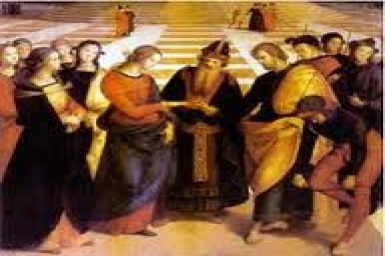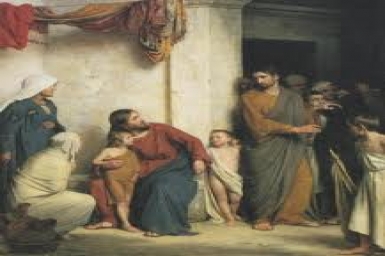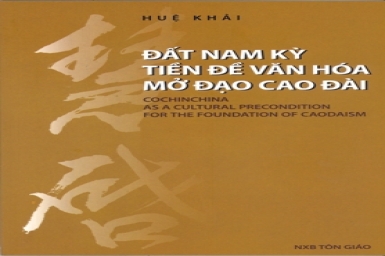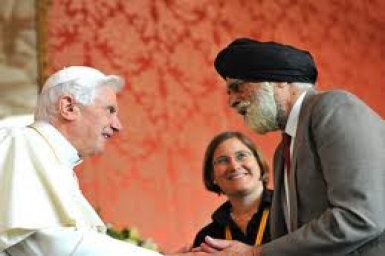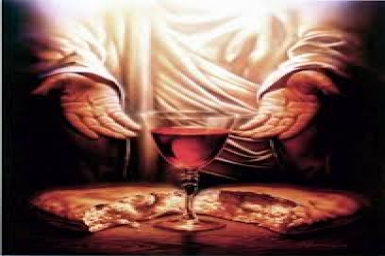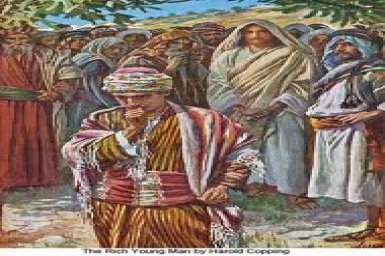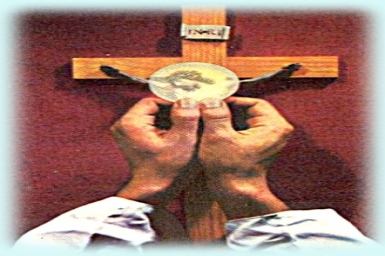Tin mới
-
St. Anthony of Padua, Doctor of the Church
By Admin WebmasterSt. Anthony was born in Portugal in 1195; on 15th August according to Baroque tradition. He was the son of the nobleman, Martino de Buglioni and Donna Maria Taveira, who lived a few metres away from the cathedral. He was christened with the name Fernando. -
Prayers to Saint Anthony: Help me to find
By Admin WebmasterThese prayers are an aid which tradition has handed down to us to assist us in our prayers to Saint Anthony and to ask for his help above all in finding our relationship with God. -
IEC2012: Sowing the seeds for renewal and healing
By Admin WebmasterCardinal Napier says coming here "was a way of coming and saying: just as Jesus gave us the Eucharist just before he suffered, so I am hoping that the church in Ireland, in all of its suffering, is going to bring the Eucharist back into the lives of the people". -
Une vision Islamique de la mort - Docteur Abdallah
By Admin WebmasterEn tant que médecin généraliste français converti à l’islam depuis dix-neuf ans, je ne me sens pas particulièrement qualifié pour parler d’un sujet aussi grave qui met en scène les bases mêmes des sciences de la foi musulmane: la "Akida". J’essaierai donc de donner un simple aperçu de la vision islamique de la mort... -
WCC calls to strengthen Christian theology in higher education
By Admin WebmasterThe role and relevance of Christian theological studies in public and private universities, as well as seminaries was at the forefront of a recent three-day consultation in Granavollen, Norway. Some 45 representatives of theological schools and associations from around the world attended. -
"One of the soldiers, however, pierced his side with a lance": Sacred Heart of Jesus (15 Juin 2012)
By Admin WebmasterToday, before our very eyes - or better still before our interior eyes, illuminated by faith - is the figure of Christ who, having just died on the Cross, has had his side pierced by the Centurion's sword. "Immediately there came out blood and water" (Jn 19, 34). -
The 3rd Annual Global Rosary Relay for Priests
By Admin WebmasterJoin in praying 60 Rosaries in 60 countries (15th June 2012): We pray that every priest may: hear and live God's word: bear Christ to others; proclaim Jesus as Saviour and Lord; possess deep faith in the Sacraments; We pray for our own bishop(s), priests and deacons. -
The Annual Global Rosary Relay for Priests (15 Juin 2012)
By Admin Webmaster... in that each of the 60 participating shrines prays a particular mystery of the Rosary at a particular half hour on the day in thanksgiving to God for our priests and to implore the protection and loving care of Our Lady, Mother of all priests, for all her priestly sons. With the coming of midnight on the 15th June 2012, the entire world, by then, will have been encircled in prayer for our priests on this The Annual Rosary Relay Day. -
The Heart of Christ (1)
By Admin WebmasterLove explains all the mysteries of Jesus; the faith that we ought to have in the fullness of this love; the Church sets it before us as the object of worship in the Feast of the Sacred Heart. -
The Heart of Christ (2)
By Admin WebmasterThe Apostle is speaking of charity towards our neighbours; applied to our love for Jesus, this formula wonderfully sums up the practice of devotion to His Sacred Heart. -
Liturgic day: Saturday following the second Sunday after Pentecost: Immaculate Heart of Mary
By Admin WebmasterThen He said to them, «Why were you looking for me? Do you not know that I must be in my Father's house?». But they did not understand this answer. Jesus went down with them, returning to Nazareth, and he continued to be subject to them. As for his mother, she kept all these things in her heart -
Devotion to the Immaculate Heart of Mary
By Admin WebmasterJust as devotion to the Sacred Heart of Jesus is only a form of devotion to the adorable Person of Jesus, so also is devotion to the Holy Heart of Mary but a special form of devotion to Mary. In order that, properly speaking, there may be devotion to the Heart of Mary, the attention and the homage of the faithful must be directed to the physical heart itself. -
Liturgic day: Sunday 11th (B) in Ordinary Time
By Admin WebmasterJesus said, "In the kingdom of God it is like this. A man scatters seed upon the soil. Whether he is asleep or awake, be it day or night, the seed sprouts and grows, he knows not how. The soil produces of itself; first the blade, then the ear, then the full grain in the ear. And when it is ripe for harvesting they take the sickle for the cutting: the time for harvest has come". -
Kingdom of God: Gospel by pictures of Sunday XI in Ordinary Time
By Admin WebmasterJesus said to the crowds: "This is how it is with the kingdom of God; it is as if a man were to scatter seed on the land and would sleep and rise night and day and through it all the seed would sprout and grow, he knows not how. Of its own accord the land yields fruit, first the blade, then the ear, then the full grain in the ear. And when the grain is ripe, he wields the sickle at once, for the harvest has come." -
History of the father's day
By Admin WebmasterAbout 4,000 years ago a young boy named Elmusu wished his Babylonian father good health and a long life by carving a Father's Day message on a card made out of clay. No one knows what happened to Elmesu or his father, but the tradition of having a special day honoring fathers has continued through the years in countries across the world. -
Poems for fathers
By Admin WebmasterWhen I think about my father, and the years we've had to share I'm thankful just to know that his love is always there. -
Father's Day Around the World
By Admin WebmasterThe idea of celebrating Fathers Day has been imported from western countries mainly US, perhaps less than a decade ago. However, it is remarkable to note that the idea of observing a day in honor of fathers has been appreciated by Indians to a large extent. Today, millions of people in India observe Father's Day on the third Sunday of June by expressing gratitude for their father or men who are like father. -
Daddy doesn't want to play with me!
By Admin WebmasterThe father, who was angered & annoyed, began tearing the magazine cover in to small pieces. After a few moments, of shredding up the magazine cover, the father placed the torn pieces on the magazine. Then, the father turned to his boy and said "Son, once you put this picture of the world back together we can play catch, but do not interrupt me again until you are done!" -
When they were together in Galilee: Monday 19th in Ordinary Time (13.8.2012)
By Admin WebmasterThough it is quite evident, the fact the Evangelist deems it necessary to mention it seems to emphasize the nearness of Jesus Christ. Shortly afterwards, Jesus opens His heart to make them aware of his Passion, Death and Resurrection, that is, of something He had been keeping inside himself but He does not want to conceal any longer from those He loves so much... -
It is the same with your Father in heaven... Tuesday 19th in Ordinary Time (14.8.2012)
By Admin WebmasterLast but not least, the Gospel teaches us today another lesson. There are, and closer to us than we think! some "small ones" that we may eventually have more forsaken than others: those that are like sheep gone astray; the Father looks for them and, when He finds them, He is more pleased because they come back home and do not go stray any more... -
My soul proclaims the greatness of the Lord...: Assumption of the Blessed VirginMary (15.8.2012)
By Admin WebmasterIn this song we find the signs to learn how the human and the divine, the earthly and the celestial blend together, while being able to react, as She does, to the gift God presents us with, in the person of his Son, through his Saint Mother: to become a gift from God to the world, and tomorrow, a gift from mankind to God, by following Mary's example, who precedes us in this glorification which we are bound to... -
Lord, how many times must I forgive...?: Thursday 19th in Ordinary Time (16.8.2012)
By Admin WebmasterEvidently, we have to oppose to injustice, and energetically, if at all necessary, (otherwise, it would be a sign of apathy or cowardice). But indignation is healthy only when there is no selfishness, nor wrath, nor any nonsense, but our straight desire to fight for the truth. The authentic patience brings us to put up mercifully with contradiction, weakness, inconveniences, unreasonable persons or events. -
Let no one separate what God has joined: Friday 19th in Ordinary Time (17.8.2012)
By Admin WebmasterToday, Jesus responds to his contemporaries questions about the true meaning of marriage by underlining its indissolubility. His answer, however, also provides the adequate foundation for Christians to respond to those whose stubborn hearts have made them seek to extend the definition of marriage to homosexual couples. -
Little children were brought to Jesus that He might lay his hands on them with a prayer: Saturday 19th in Ordinary Time (18.8.2012)
By Admin WebmasterThe poor ones, that is, those needy, those who have nothing, are the object of a special predilection by the Lord. And children, infants, are indeed very “poor”. They are poor in age; they are poor in formation... They are defenseless. This is why, the Church —our “Mother”— has decided that parents should bring their children as soon as possible to the baptism, so that the Saint Spirit may inhabit in their souls and they may join the warmth of the community of believers. -
Cochinchina as a cultural precondition for the foundation of Caodaism (4)
By Admin WebmasterOf those 300 historical years, Caodaism covers less than one third. Innumerable hardships and perilousness suffered by Caodaist founders are possibly not much different from those endured by generations of pioneers in Cochinchina. They all yearned to open a bright horizon for their descendants... -
Why should Engage in Dialogue?
By Admin WebmasterBecause many get the impression that intereligious dialogue in confined to formal dialogue sessions which take place amongst elites in conference halls, it is important that the various types and categories of dialogue be spelled out.... -
I am the living bread which has come from heaven; whoever eats of this bread will live forever: Sunday 20th (B) in Ordinary Time (19.8.2012)
By Admin WebmasterJesus Christ, who is the Way, the Truth and the Life, speaks of himself by saying He is the Bread of Life. And, as we know quite well, the bread is to be eaten. But to eat —we should not forget— we must be hungry. How can we actually understand what being a Christian really means, if we have lost our hunger for God?... -
What good work must I do to receive eternal life?: Monday 20th in Ordinary Time (20.8.2012)
By Admin WebmasterToday, too, how many ask themselves that same question! If we look around us, we may think there are not that many who can see beyond, or, perhaps, that the 21st century man does not need that type of questions, being the answers are no good enough for him... -
Food and drink for forever living: Gospel by pictures of Sunday XX in Ordinary Time (19-Aug-2012)
By Admin WebmasterJesus said to them, "Amen, amen, I say to you, unless you eat the flesh of the Son of Man and drink his blood, you do not have life within you. Whoever eats my flesh and drinks my blood has eternal life, and I will raise him on the last day. For my flesh is true food, and my blood is true drink. -
It will be hard for one who is rich to enter the kingdom of heaven...: Tuesday 20th in Ordinary Time (21.8.2012)
By Admin WebmasterAnd, despite it all, Jesus loved and called wealthy men, without demanding from them the abandonment of their responsibilities. Wealth, per se, is not bad; its origin is, if it was unjustly acquired or its destination, if it is selfishly employed without bearing in mind the needy, if it closes our heart to the true spiritual values (where there is no need of God)...

